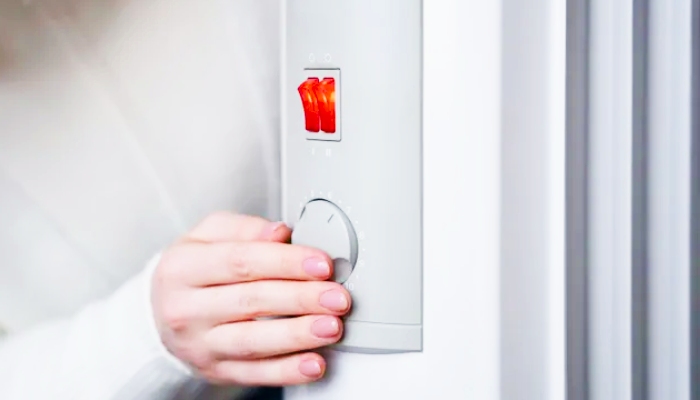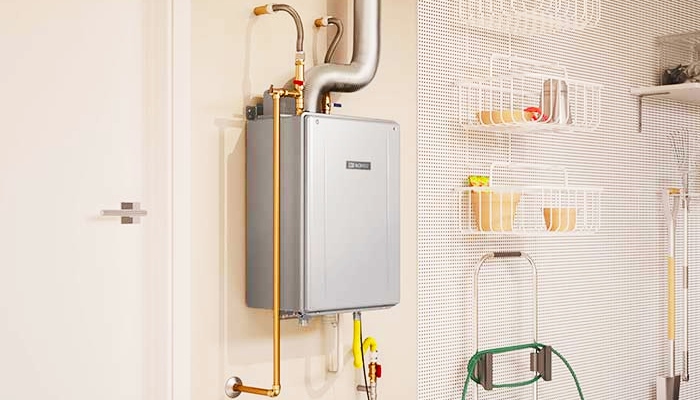
In the quest for more energy-efficient and sustainable solutions for everyday needs, the evolution of water heating technology has taken a significant leap forward with the advent of tankless electric water heaters. Traditional water heating systems, often bulky and inefficient, are gradually being replaced by these sleek, on-demand devices that offer a myriad of benefits over their predecessors. The shift towards tankless electric water heating technology represents not just an advancement in energy efficiency, but also a commitment to environmental sustainability and homeowner convenience.
Tankless electric water heaters, known for their ability to provide hot water on demand without the need for a storage tank, are revolutionizing how homeowners and businesses think about hot water. Unlike traditional systems that constantly heat and reheat water to keep it at a ready temperature, tankless systems heat water directly as it flows through the device, ensuring hot water is available instantly and without waste. This approach not only saves energy but also reduces utility bills and the environmental footprint of water heating. As we delve into the intricacies of tankless electric water heaters, we uncover the innovations that make them a compelling choice for the modern consumer and explore the innovations and future trends in tankless electric water heating technology, that will continue to shape this evolving market.

Understanding Tankless Electric Water Heaters
Tankless electric water heaters, often referred to as on-demand or heat pumps or instant water heaters, operate on a straightforward principle: they heat water directly without the use of a storage tank. When a hot water tap is turned on, cold water travels through a pipe into the unit, where electric elements heat the water to the desired temperature as it passes through. This eliminates the standby energy losses associated with traditional tank water heaters, offering significant energy savings.
One of the key advantages of tankless electric water heaters is their compact size. Without the need for a bulky tank, these units can be installed in smaller spaces, freeing up valuable room in homes and commercial properties. This makes them an ideal solution for urban dwellings and businesses looking to maximize their use of space.
Moreover, tankless water heaters provide a continuous supply of hot water, which is perfect for families and businesses that have high hot water demands. Traditional tank systems can run out of hot water during peak usage times, but tankless systems can deliver a steady flow, as long as the demand does not exceed their capacity. This ensures that continuous hot water that is always available when needed, enhancing comfort and convenience for users.
The technology behind tankless electric water heaters has also seen significant advancements. In Australia, these advancements have led to an increased adoption of tankless electric water heater systems, thanks to their energy efficiency and suitability for the Australian lifestyle and climate. Modern units come equipped with sophisticated controls and sensors that adjust the heating process based on the flow rate and incoming water temperature. This ensures that the water is heated to the precise temperature required, further enhancing energy efficiency and preventing overheating or underheating. Additionally, many newer models feature digital displays and connectivity options, allowing users to monitor and adjust settings via smartphones for added convenience and energy savings.
Despite their many benefits, tankless electric water heaters, including those in Australia, are not without their challenges. Installation on demand water heaters can be more complex and costly than traditional systems, particularly in homes that require upgrades to their electrical systems to support the high power demands of tankless units. However, the long-term energy savings and the environmental benefits of reducing energy consumption often outweigh these initial investment costs, making tankless electric water heater systems a compelling choice for modern living in Australia.
Current Innovations in Tankless Electric Water Heating
The landscape of tankless electric water heating technology is undergoing rapid transformation, driven by a relentless pursuit of efficiency, user-friendliness, and sustainability. Innovations in this sector are not just enhancing the performance of these units but are also setting new standards for energy consumption and environmental impact.
Energy Efficiency Improvements: One of the most significant areas of advancement in tankless electric water heating technology is in the realm of energy efficiency. Manufacturers are leveraging cutting-edge materials and innovative design techniques to minimize heat loss and improve the efficiency of heat transfer. For traditional water heaters for instance, the use of advanced flow control algorithms ensures that the energy consumption adjusts dynamically to the demand for hot water, reducing waste. These improvements are crucial for meeting stricter energy standards and for consumers looking to decrease their carbon footprint and utility bills.
Smart Features and IoT Integration: The integration of smart technology and the Internet of Things (IoT) has revolutionized how tankless electric water heaters are controlled and monitored. Modern units now come equipped with Wi-Fi connectivity, allowing users to adjust the temperature settings, monitor energy usage, and receive maintenance alerts through their smartphones or other smart devices. This level of control not only enhances the user experience but also contributes to energy savings by enabling precise management of water heating according to actual needs.
Advances in Materials and Design: The evolution of materials science has also played a pivotal role in the advancement of tankless electric water heating technology. High-efficiency heating elements, corrosion-resistant materials, and compact, space-saving designs are becoming standard features. These materials not only extend the lifespan of the most efficient water heaters, but also improve their performance and efficiency. Furthermore, the aesthetic design of tankless water heaters has evolved, with sleek and modern appearances that blend seamlessly into a variety of home decors.

Market Trends and Consumer Adoption
The tankless electric water heater market is witnessing substantial growth, driven by a confluence of factors including rising energy consciousness, technological advancements, and shifting consumer preferences.
Growth Drivers: The global push towards energy efficiency and sustainable living is a significant driver behind the increasing adoption of tankless electric water heaters. Consumers are becoming more aware of the environmental and financial benefits of energy-efficient appliances, leading to a surge in demand. Additionally, government incentives and rebates for energy-efficient home improvements have made these systems more accessible to a broader audience.
Consumer Perceptions and Sustainability: Today’s consumers are not just looking for cost savings; they are also motivated by environmental concerns. Tankless electric water heaters appeal to this eco-conscious demographic by offering a greener alternative to traditional water heating methods. The reduction in energy consumption and the elimination of standby and heat pump will loss resonate with consumers aiming to reduce their carbon footprint.
Regulatory Impacts: Regulatory frameworks around the world are increasingly focusing on energy efficiency standards for household appliances, including water heaters. These regulations are pushing manufacturers to innovate and produce more efficient models, thereby accelerating the adoption of tankless and heat pump technology. As these standards become more stringent, the market is expected to see a continued shift towards high-efficiency tankless electric water heaters.
Adoption Challenges: Despite the growing popularity, the adoption of tankless electric water heaters faces challenges. High initial installation costs and the need for significant electrical upgrades in some homes deter some potential users. However, the long-term savings on energy bills and the environmental benefits are compelling arguments that are gradually overcoming these hurdles.
Consumer Education and Awareness: Increasing consumer education and awareness about the benefits of tankless electric water heaters is critical for further market penetration. Manufacturers and retailers are investing in marketing campaigns and educational initiatives to demystify the technology and highlight the long-term advantages of making the switch to tankless systems.
Challenges and Limitations
While tankless electric water heaters offer numerous advantages, including energy efficiency and space savings, they also face certain challenges and limitations that are important for consumers and industry stakeholders to consider.
Technical Challenges: The installation of tankless electric water heaters can be more complex than traditional tank systems. In homes not originally equipped for tankless systems, significant electrical upgrades may be required to handle the high power demand, potentially increasing installation costs. Moreover, in areas with hard water, the buildup of scale can reduce efficiency and lifespan, necessitating regular maintenance and potentially the installation of water softeners.
Limitations in High-Demand Scenarios: Tankless electric water heaters provide hot water on demand, but their flow rate is limited by their size and design. In situations where multiple outlets require hot water simultaneously, such as running a shower and dishwasher at the same time, some models may struggle to keep up. This limitation requires careful selection of the heater’s capacity based on anticipated peak demand to ensure adequate and continuous hot water supply.
Cost Analysis: The initial investment in a tankless electric water heater, including the unit and installation, can be significantly higher than that of traditional tank models. While tankless systems offer long-term savings on energy bills, the upfront cost can be a barrier for some households. The payback period varies based on usage, energy prices, and the efficiency of the chosen model, making it crucial for consumers to conduct a thorough cost-benefit analysis before making a purchase.

Future Trends and Innovations
The future of tankless electric water heating technology is bright, with ongoing research and development focused on overcoming current limitations and enhancing the capabilities of these systems. Several trends and innovations are poised to shape the next generation of tankless water heaters.
Technological Advancements in Heating Elements: Research into more efficient and durable heating elements is ongoing, with materials like graphene and advanced ceramics being explored for their superior heat conduction and resistance to scaling. These advancements could lead to tankless water heaters that take less energy, are more efficient, have faster response times, and require less maintenance.
Integration with Renewable Energy Sources: As the global emphasis on sustainability grows, the integration of tankless electric water heaters with renewable energy sources such as solar power and wind power is becoming increasingly viable. Future systems may come equipped with the ability to seamlessly switch between grid electricity and renewable energy, minimizing carbon footprints and operating costs.
Developments in AI and Machine Learning: Artificial intelligence (AI) and machine learning are set to revolutionize tankless water heating systems by enabling predictive maintenance and optimized energy use. These technologies can analyze usage patterns to predict hot water needs, adjusting heating schedules and power use to maximize efficiency and minimize energy waste. Furthermore, AI can monitor system health in real-time, alerting owners to potential issues before they require costly repairs.
Nanotechnology and New Materials: Innovations in nanotechnology and new materials promise to enhance the energy efficiency of tankless electric water heaters. Nano-coatings and other advanced materials could improve heat transfer rates and reduce energy losses, making these systems even more efficient. Additionally, the development of more compact and efficient insulation materials could help minimize heat loss in the system’s components.
Customization and User-Centric Design: Future tankless electric water heaters are likely to offer greater customization options, allowing users to tailor settings to their specific needs and preferences. Advances in digital interfaces and user experience design will make these systems easier to operate and integrate with smart home ecosystems, providing users with unprecedented control over their water heating.
The Role of Policy and Regulation: As governments worldwide continue to implement policies aimed at reducing energy consumption and greenhouse gas emissions, tankless electric water heaters are expected to play a pivotal role in achieving these goals. Future regulations may further incentivize the adoption of high-efficiency, eco-friendly smart water heaters and heating solutions, accelerating the transition towards sustainable energy systems.
Case Studies and Real-World Applications
Exploring real-world applications and case studies of tankless electric water heaters reveals their impact on energy savings, sustainability, and user convenience. These examples illustrate how innovative tankless, water heater technology meets diverse hot water needs across residential and commercial settings.
Residential Success Stories: One compelling case study involves a family residing in a four-bedroom home who replaced their aging tank-based system with a high-capacity tankless electric water heater. The transition resulted in a 25% reduction in their monthly energy bills and provided a continuous supply of hot water, enhancing their quality of life. Additionally, the compact size of the tankless system freed up significant space in their utility room, allowing for additional storage.
Commercial Applications: In the commercial sector, a small hotel faced challenges with its traditional water heating system, unable to meet the hot water demands during peak occupancy. After switching to multiple tankless electric water heaters, the hotel not only achieved a 30% decrease in energy consumption but also ensured that guests had immediate access to hot water at any time of day. The modular nature of the two tankless water heater systems also allowed for easy expansion as the hotel grew.
Sustainability Impact: Another case study highlights a green building project that incorporated tankless electric water heaters as part of its strategy to achieve LEED certification. The project demonstrated how tankless technology contributed to the building’s overall energy efficiency, helping it to meet stringent environmental standards. The use of renewable energy sources in tandem with the tankless solar water heaters further minimized the carbon footprint of the building.
These real-world applications underscore the versatility and efficiency of tankless electric water heaters, showcasing their ability to provide tangible benefits in a variety of settings. By addressing specific challenges and leveraging the strengths of tankless technology, these case studies offer valuable insights into the practical advantages of making the switch from traditional systems to heat pump water heaters.

Conclusion and Future Outlook
The journey through the innovations and trends in tankless electric water heating technology underscores a dynamic field poised for continued growth and development. As we have seen, the shift towards tankless systems is driven by the demand for more efficient, sustainable, and convenient water heating solutions. The advancements in energy efficiency, smart technology integration, and the use of renewable energy sources are paving the way for a new era of electric water heating solutions that aligns with global sustainability goals.
The challenges and limitations of current tankless electric water heaters, while significant, are being actively addressed through innovation and research. The future trends in this technology ranging from advancements in heating elements to AI and machine learning applications promise to overcome these hurdles, offering systems that are not only more efficient but also more user-friendly and adaptable to individual needs.
As we look ahead, the role of policy and regulation will undoubtedly influence the adoption and evolution of tankless electric water heating technology. Incentives for energy-efficient appliances and stricter environmental standards will continue to drive improvements in the sector, making tankless hot water systems an increasingly attractive option for both new constructions and retrofit projects.
In conclusion, the future of tankless electric water heating technology is bright, with endless possibilities for innovation and improvement. For consumers, businesses, and the environment, the benefits of these systems are clear, offering a path towards reduced energy consumption, lower utility bills, and a lesser environmental impact. As we move forward, the continued evolution of electric tankless water heaters will play a crucial role in shaping a more sustainable and efficient future for water heating.
